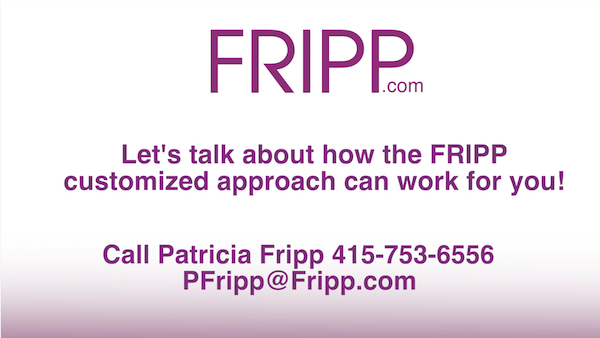Whether you’re delivering a sales presentation, a keynote speech, or a report to the board, choose your words carefully to build credibility, sound intelligent, and make your message understood. When you choose and use precise language you will sound intelligent. You will have the power to make your message stick and be quoted from the boardroom to the convention hall.
Never be vague if you want to be believed. Use exact, precise words – words with power and value.
People tune out when they hear weak, overused, catch-all words. The question I most frequently ask my speech coaching clients is, “If it were not a ‘thing,’ what would it be?”
A highly educated and intelligent engineer was preparing to speak at a breakout session of his company’s customer meeting. In our coaching session, he said, “There are two things people love about . . .” I asked, “If it were not a ‘thing’ what would it be?” He replied, “Innovative upgrades.” My next question was, “There are billions of people in the world. Which people love your innovative upgrades?” He replied “Systems administrators.”
Can you see the power in the clear, concise statement that he took to the stage? “There are two innovative upgrades that systems administrators love.” This was especially important because his audience of customers was from 71 different countries. Adding specificity builds your credibility and adds value to what you are saying.
It’s easy to get sloppy. For example, last year I was speaking at a conference, and a Hall of Fame speaker walked out and said, “I am going to talk about 10 things.” I wanted to scream. When I coach professional speakers, consultants, coaches, and trainers on their presentation skills, I’m amazed at how often I hear the word “thing.” One key to major improvement is to become aware of how often you say “thing.” You cannot improve what you are not aware of. Perhaps you agree that “thing” is a fuzzy, flabby, non-specific word!
At one of my speech coaching group sessions at an event for speakers, consultants, and ambitious professionals, the other coach and I became aware of the overuse and abuse of the word “thing.” I sat at the back of the room and started to jot down alternatives.
It’s tempting to be lazy with language, but the next time you hear someone – maybe even yourself – use the word “thing,” write out the sentence and find a way to replace “thing” with a stronger, more specific word. You will become more aware of your own word choices and find it easier to speak with precision.
Here’s the list of better choices I quickly brainstormed as I sat in the back of the seminar room. (I’ve alphabetized them for your convenience.)
“The most important _______ is . . .”
approach • assumption • attitude • challenge • commitment • conclusion • condition • consideration • deduction • deliberation • detail • discipline • distraction • element • event • example • exercise • experience • fact • focus • habit • idea • image • inspiration • instruction • lesson • message • method • moment • necessity • opinion • opportunity • option • organization • paradox • perception • philosophy • point • practice • precaution • principle • problem • process • program • reason • reflection • routine • safeguard • secret • sentiment • speculation • speech • strategy • tendency • thought • view • way
What words would you add to your list?
Why not have a conversation with Patricia Fripp to discuss how you can gain a competitive advantage by improving your presentations?
“We consider the investment in Patricia a ‘must-have’ part of our events. She is part of the team. I’m honestly a bit reluctant to recommend Patricia publicly. We’d very much like to have her work exclusively with Nutanix. We are now leveraging Patricia in other areas outside of public events.![]()
She is now coaching speakers for our high-visibility Executive Briefing Center. Not surprisingly, we’re receiving the same outstanding feedback from these presenters, too.”
– Greg Smith, Vice President, Product Marketing at Nutanix
Executive Speech Coach and Hall of Fame Keynote Speaker Patricia Fripp works with individuals and companies who realize that powerful, persuasive presentation skills give them a competitive edge.

Patricia, what a great list. I’ve often had the same challenge when posting tips on my blog. This list not only works for speaking but for writing as well. Thanks for taking time to compile these alternatives!
Great post, thank you! As a professional speaker, coach, trainer and consultant I can relate.